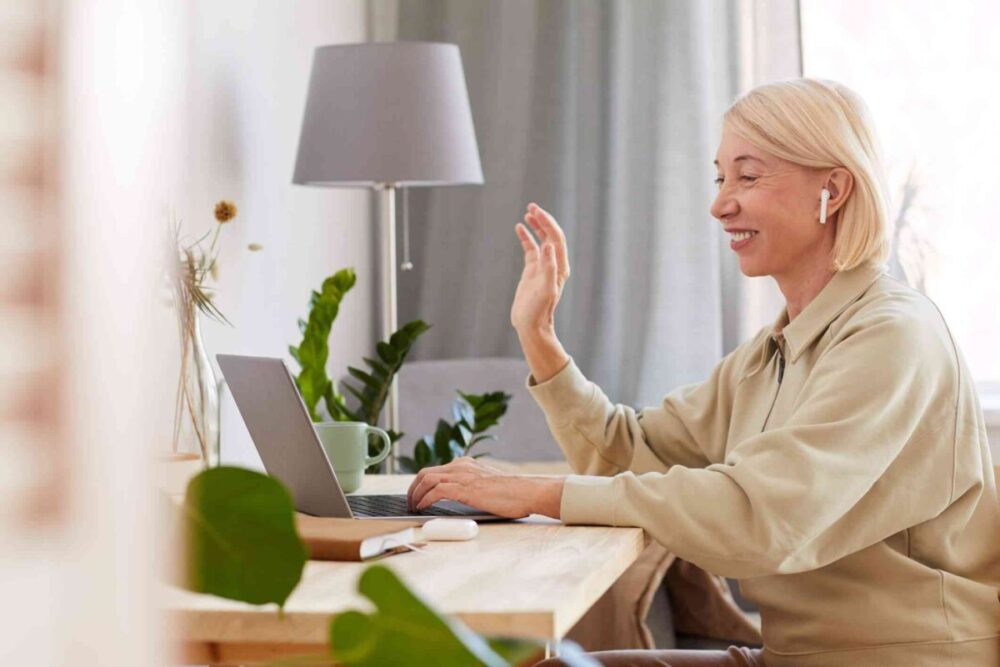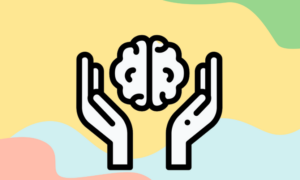Many people hesitate to talk about their emotions in traditional settings. Social pressure, stigma, or the fear of being misunderstood can make those conversations difficult to start. Anonymous digital spaces fill that gap, offering a private way to share thoughts without exposing one’s identity.
Online chats, such as live chat online, have become a crucial component for individuals seeking to relieve stress, discuss personal issues, and find community without the fear of judgment. The veil of anonymity can offer a sense of security, encouraging more open and honest communication.
In exploring the correlation between anonymous chatting and mental well-being, there’s much to uncover about its potential benefits and pitfalls. Below, we delve into how anonymized digital conversations could be shaping the future of mental health support.
The Rise of Anonymous Online Chatting and Its Surprising Mental Health Benefits

Source: betterhelp.com
The advent of anonymous online chatting represents a significant shift in how we approach conversations about mental health. In the past, the stigma surrounding these discussions often hindered openness. Today, the veil of anonymity facilitates a newfound freedom for individuals to express their most intimate concerns without fear of backlash or identification.
Research suggests that anonymity can break down barriers that typically deter people from seeking help. Without the potential for negative social repercussions, individuals are more likely to share personal experiences and receive support. This shift could lead to early intervention and foster a preventative approach to mental health care.
Those enduring tough times find solace in sharing with strangers who are empathetic and removed from their personal lives. Anonymity provides a neutral ground, free from the bias or preconceptions that might be present in real-life social circles. It creates a sanctuary where concerns can be voiced and reassurance can be found.
Why People Turn to Anonymous Chats
Anonymous chat platforms appeal to a growing number of people for reasons that go beyond convenience. They align with a changing understanding of what emotional safety looks like in the digital era.
- Reduced fear of stigma: People feel safer expressing vulnerability when their identity remains hidden.
- Instant availability: Access to help and understanding is available at any hour, from any location.
- Nonjudgmental space: Conversations unfold without bias, allowing users to receive unfiltered empathy.
- Control over interaction: Users can end or restart discussions freely, preserving their sense of agency.
- Accessible alternative: For those unable to afford therapy, free chat options offer crucial emotional outlets.
Together, these factors explain why anonymous chats have become a quiet but transformative part of online mental health support.

Source: regain.us
Unveiling the Relationship Between Anonymity and Emotional Expression
The mask of anonymity encourages a level of emotional expression that might be inhibited in face-to-face interactions. It becomes easier for individuals to share their feelings when they believe there will be no direct consequences for their real-world personas. Consequently, people often delve into deeper conversations and confront issues they might otherwise avoid.
This liberation from personal identity also fosters an environment where individuals can openly seek advice on sensitive subjects. Online platforms have seen an uptick in users eager to engage in candid discussions about mental health, showcasing the demand for such anonymous services.
However, this detachment from identity is not solely beneficial. Challenges arise when users detach too much and potentially engage in misplaced trust. Despite this, the overarching sentiment points towards the therapeutic value of having the freedom to be unseen yet heard.
Anonymity also impacts the receipt of advice and feedback. Without preconceived notions about the person seeking help, other chat participants tend to focus more on the issues at hand rather than on who is behind the screen. This can lead to more unbiased and constructive support.
Common Risks and How to Manage Them
While anonymous chats can provide relief and community, they also present specific challenges that users should navigate carefully.
- Misinformation risk: Not all advice online comes from trained professionals.
- Emotional overexposure: Sharing deeply personal issues repeatedly may heighten distress if not balanced with self-care.
- Privacy concerns: Users must ensure platforms have secure data handling policies.
- Dependence on anonymity: Some individuals may find it difficult to transition from anonymous support to professional therapy.
- Lack of accountability: Without identity verification, some users may misuse the space or provide harmful feedback.
By understanding these risks, individuals can use online chats as a healthy supplement to, not a replacement for, formal mental health care.
The Therapeutic Power of Anonymous Connections in a Digital World

Source:facebook.com
The digital age has given rise to the therapeutic community-based support found on various platforms where anonymity is a foundational element. The psychological relief that accompanies the act of unburdening oneself without the fear of recognition has been likened to traditional forms of therapy. Often at no cost, these digital exchanges offer a form of catharsis that is accessible and immediate.
For individuals wary of formal therapy or unable to access it due to geographical or financial constraints, anonymous chats serve as an invaluable alternative. They provide a space for continuous support that might not be available through existing local resources, allowing for help at any hour. This round-the-clock accessibility highlights the unique value of digital support networks.
In addition to offering support, these platforms can facilitate personal growth. Users learn to articulate their feelings and experiences more clearly, which is in itself a therapeutic exercise. They also gain different perspectives from the diverse community of anonymous peers, broadening their understanding of their own situation.
Despite the benefits, it’s essential to approach these digital connections with a degree of caution. Anonymous engagements do not replace professional therapy and should be considered a supplementary avenue for support. Users need to be discerning about the advice they accept and remain vigilant about maintaining healthy boundaries.
Anonymous online chats present a unique avenue for mental wellness support that can be both empowering and healing. With the appropriate safeguards and responsible usage, these platforms can offer a sanctuary for those seeking a nurturing community and a place to be heard without reservation.





















